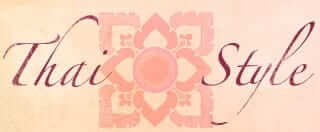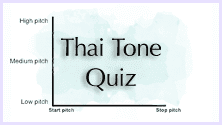If you visit Thailand in April – the hottest month of the year, you will undoubtedly find yourself exposed to high temperature. But ‘fear no more the heat o’ the sun’, you can join the locals in the water fight and cool yourself off during this lively Songkran festival.
What is Songkran
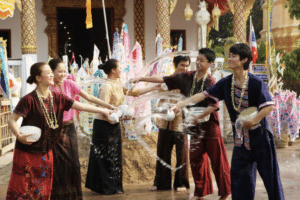
Songkran (สงกรานต์ in Thai or संक्रांति in Sanskrit) is a Sanskrit word for ‘a move’ or ‘a change’ since the celebration occurs during the period where the sun changes its position in the zodiac. Each of the three days have their own name and different significance.
The 13th is the Grand Songkran Day, which is the first day of the year according to the Thai lunar calendar.
The 14th is considered Thailand’s National Family Day.
Lastly, the 15th marks Thai National Elderly Day.
Undoubtedly, Songkran festival revolves around family values and reuniting with the loved ones. Therefore, this 3-day national holiday is equivalent to that of Christmas in the Christian traditions.
Legend
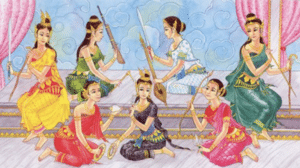
Thammabal solved the riddles and Kabilla Phrom kept his word. However, his head had strange powers that could cause disasters. If it should touch the ground, the earth would catch fire; if it were to be left in the air, there would be no rain and if it were to be dropped into the sea, the sea would run dry.
To save the world, Kabilla Phrom’s 7 daughters or Nang Songkran (นางสงกรานต์) agreed to take turns to carry their father’s head on a golden phan or tray (พานทอง) around Mount Meru each year.
Since then the celebration was called Songkran and was adopted by many Southeast Asian countries. It is also believed that Nang Songkrans who take turn in carrying the golden phan each year possess different characteristics.
As a result, their traits can implicate future circumstances within the country in the coming year.
Traditions
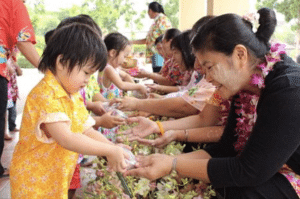
Moreover, Thai people would also gently sprinkle water onto their family members and friends as a blessing for the coming year. Paying reverence to ancestors is also a significant part of Songkran festival.
All of these rituals were deemed auspicious. Such activities are still performed in the modern-day Songkran festival, but only as part of the celebration by younger generations.
Modern-day Songkran
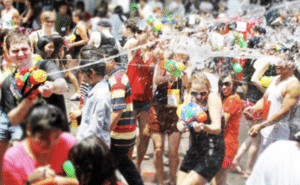
Do not go out if you do not plan to get water-soaked! Some people also mix powder with water and apply it on strangers on streets.
Major destinations for Songkran are Silom, Siam, and Thanon Khao San in Bangkok, while Chiang Mai and Khon Kaen are also popular outside the capital. This crazily fun way to celebrate Songkran is a memorable, not-to-be-miss activity you should participate if you are in Thailand in April.
However, remember to be careful and respectful to your fellows as the fight can be escalated and become an assault which no one wants to happen.
Songkran Tips
- Protect your phone or camera with a plastic bag, or leave it at a safe place to avoid being damaged. Waterproof cameras suit this event best!
- Have fun in major destinations; get to know the locals and real Songkran in local water fights in the city centre in each province.
- NO ESCAPE – you will get wet everywhere you go.
- Say ‘Sawasdee Bpee Mai’ = ‘Happy New Year’
- Or ‘Suksan Wan Songkran’ = ‘Happy Songkran Day’
สุขสันต์วันสงกรานต์ค่ะ ‘Suksan Wan Songkran ka’
By Kruu Guggwang
